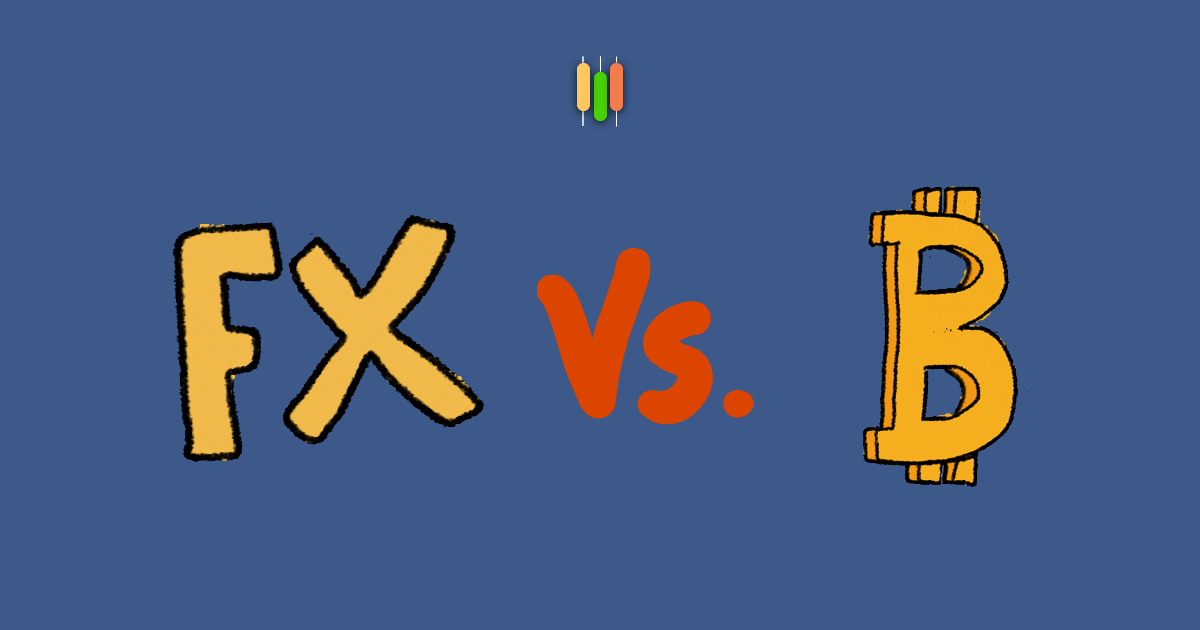Forex and Bitcoin are two financial instruments that have gained significant attention in recent years. Forex, also known as foreign exchange, involves the trading of currencies, while Bitcoin is a decentralized digital currency that operates independently of a central bank. Despite having some similarities, Forex and Bitcoin have several distinct differences that set them apart. The purpose of this article is to highlight the key differences between Forex and Bitcoin and provide a comprehensive understanding of both financial instruments. By the end of this article, readers will have a better understanding of the pros and cons of Forex and Bitcoin and be able to make informed decisions about which instrument to trade.
Understanding Forex
Forex, short for foreign exchange, is a decentralized market where currencies from around the world are traded. The Forex market is the largest and most liquid financial market in the world, with a daily trading volume of over $6 trillion. Forex trading involves the simultaneous buying and selling of two different currencies with the aim of profiting from changes in the exchange rate between them.
Forex trading is carried out through a broker or a market maker. A trader opens a trading account with a broker and deposits funds into the account. The trader then chooses a currency pair to trade, such as the US dollar and the euro, and decides whether to buy or sell the currency pair. If the trader believes that the value of the US dollar will increase relative to the euro, they will buy the US dollar. If the value of the US dollar decreases, the trader will sell the US dollar to minimize their losses.
Advantages of Forex Trading:
Forex trading offers several advantages over other financial instruments. Some of the advantages of Forex trading include:
- Liquidity: Forex is the largest and most liquid financial market in the world, offering traders the ability to buy and sell currencies 24 hours a day, five days a week.
- Leverage: Forex brokers offer traders the ability to trade with leverage, allowing traders to increase their exposure to the market with a smaller investment.
- Low transaction costs: Forex trading typically involves lower transaction costs compared to other financial instruments, making it accessible to a wider range of traders.
- Global reach: Forex trading allows traders to access markets from around the world, giving them the ability to trade in different currency pairs and take advantage of global economic events.
Overall, Forex trading is a popular financial instrument that offers traders the opportunity to trade in a large and liquid market with the potential for significant returns.
Understanding Bitcoin
Bitcoin is a decentralized digital currency that operates independently of a central bank. It was created in 2009 by an unknown person or group of people using the pseudonym Satoshi Nakamoto. Bitcoin operates on a technology known as blockchain, which is a decentralized ledger that records all transactions in a secure and transparent manner.
Bitcoin trading is carried out through a cryptocurrency exchange. A trader opens an account with an exchange and deposits funds into the account. The trader then buys and sells Bitcoin with the aim of profiting from changes in the price of the cryptocurrency. Bitcoin prices are determined by supply and demand in the market, with prices rising as demand for Bitcoin increases and falling as demand decreases.
Advantages of Bitcoin Trading:
Bitcoin trading offers several advantages over other financial instruments. Some of the advantages of Bitcoin trading include:
- Decentralization: Bitcoin operates independently of a central bank, making it less susceptible to government intervention and manipulation.
- Security: Bitcoin operates on a decentralized ledger known as blockchain, which provides a high level of security for transactions and protects against fraud and hacking.
- Borderless transactions: Bitcoin allows for borderless transactions, making it possible to send and receive payments from anywhere in the world with no restrictions.
- Increased accessibility: Bitcoin is accessible to a wider range of people, including those who may not have access to traditional financial services.
Overall, Bitcoin is a relatively new financial instrument that offers traders the opportunity to trade in a decentralized digital currency with the potential for significant returns. However, it is important to note that the market for Bitcoin is still developing and is more volatile compared to more established financial instruments like Forex.
Key Differences between Forex and Bitcoin
Now we will be exploring the key differences between Forex and Bitcoin. These two financial instruments have different strengths and weaknesses, making them attractive to different types of traders and investors. By understanding the differences between Forex and Bitcoin, you can make an informed decision about which instrument is best for your investment goals and risk tolerance.
Regulation
One of the key differences between Forex and Bitcoin is regulation. Forex is regulated by central authorities, such as the US Securities and Exchange Commission (SEC) and the Commodity Futures Trading Commission (CFTC), which oversee the market to ensure fair and transparent trading. In contrast, Bitcoin operates independently of central authorities and is not subject to the same level of regulation as Forex. While some countries have taken steps to regulate Bitcoin, the market remains largely unregulated.
Market Size
Another key difference between Forex and Bitcoin is market size. Forex is the largest and most liquid financial market in the world, with a daily trading volume of over $6 trillion. In contrast, the market for Bitcoin is much smaller, with a daily trading volume that is a fraction of the Forex market. Despite its smaller size, the market for Bitcoin has grown rapidly in recent years and continues to attract significant interest from traders and investors.
Liquidity
Forex is highly liquid, with a large number of buyers and sellers in the market and the ability to trade 24 hours a day, five days a week. In contrast, the market for Bitcoin can be less liquid, with limited trading options and the possibility of wide price swings. This can make it more difficult for traders to enter and exit positions in the market.
Volatility
The Forex market is generally less volatile compared to the Bitcoin market. Forex prices are influenced by a wide range of economic and political factors, such as interest rates and economic data releases, which can help to stabilize prices. In contrast, the price of Bitcoin can be highly volatile, with significant price swings in a short period of time. This can make the market for Bitcoin more risky for traders and investors.
Accessibility
Forex is accessible to a wide range of traders, with a large number of brokerages offering trading services and a low cost of entry. In contrast, the market for Bitcoin is still developing, with limited options for buying and selling the cryptocurrency. This can make it more difficult for new traders to get involved in the market.
Purpose
Finally, Forex and Bitcoin have different purposes. Forex is primarily used for trading currencies, with the aim of profiting from changes in exchange rates. In contrast, Bitcoin is used as a means of payment and as a store of value, with the aim of providing a decentralized and secure alternative to traditional currencies.
Forex and Bitcoin are two distinct financial instruments with different strengths and weaknesses. Forex offers traders the ability to trade in a large and liquid market with low transaction costs and a high level of regulation, while Bitcoin provides traders with the opportunity to trade in a decentralized digital currency with increased security and accessibility. When deciding which instrument to trade, it is important to consider your investment goals and risk tolerance.
Bitcoin vs Forex: Conclusion
In summary, the key differences between Forex and Bitcoin include regulation, market size, liquidity, volatility, accessibility, and purpose. Forex is regulated by central authorities and is the largest and most liquid financial market in the world, while Bitcoin operates independently of central authorities and has a smaller market size. Forex is highly liquid and generally less volatile, while the market for Bitcoin can be less liquid and highly volatile. Forex is accessible to a wide range of traders with low costs of entry, while the market for Bitcoin is still developing with limited options for buying and selling. Forex is used for trading currencies, while Bitcoin is used as a means of payment and a store of value.
When choosing between Forex and Bitcoin, it is important to consider your investment goals and risk tolerance. Forex offers traders the ability to trade in a large and liquid market with low transaction costs and a high level of regulation, making it suitable for those looking for a more stable investment. In contrast, Bitcoin provides traders with the opportunity to trade in a decentralized digital currency with increased security and accessibility, making it attractive to those seeking a more innovative investment. Ultimately, the best choice will depend on your individual circumstances and financial goals. Before investing, it is advisable to research both Forex and Bitcoin thoroughly and seek the advice of a financial professional.
Freddie Barlow is a genius forex trader. He has made a fortune in the markets, and his skills are sought by traders all over the world. Freddie's ability to read the market and anticipate changes has made him one of the most successful traders in history.

